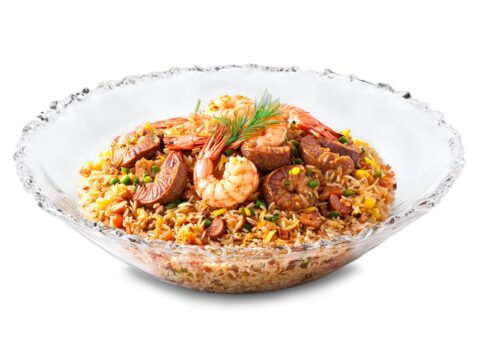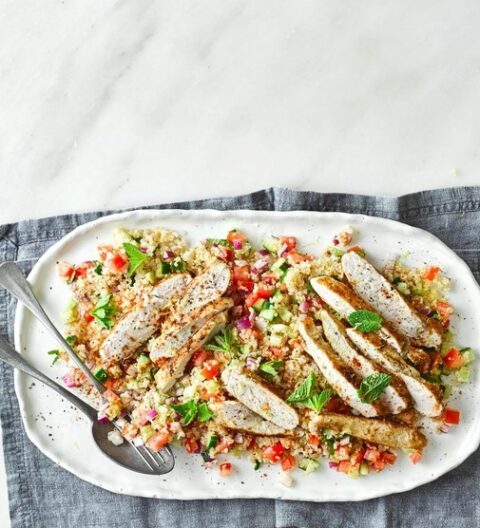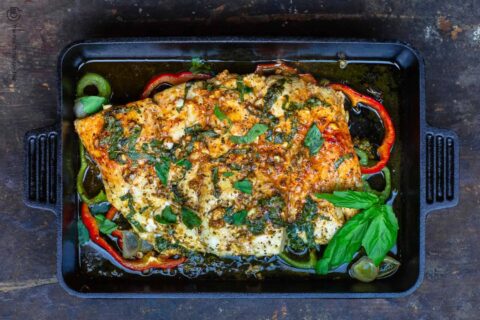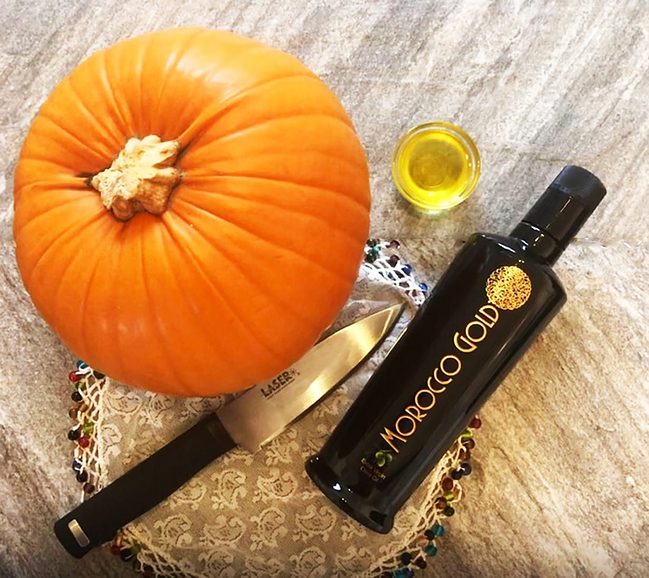
Explores why combining best olive oil with this seasonal favourite is a great way of matching the health benefits of these ‘superfoods’ for a great Halloween
Updated October 25th 2024
Why Extra Virgin Olive Oil And Pumpkin Are A Great Fit
In a world where unhealthy diet and lifestyle is a growing problem, there is a need for a better, healthier way of living. The consumption of saturated fats, for instance, is one of the factors that contribute to this problem.
Fortunately, there is a solution that is not only delicious but also beneficial for your health – extra virgin olive oil, widely considered the best olive oil. Packed with polyphenols, extra virgin olive oil has many olive oil benefits that can help prevent illness and improve overall health. The Mediterranean diet is one of the most popular diets that include extra virgin olive oil as its primary source of fat. However, to truly reap the benefits, it is essential to combine it with an overall healthy lifestyle.
So, when making nutritional choices, don’t forget the importance of matching the best olive oil with seasonal favourites for a healthier lifestyle.
Pumpkin is a favourite in the run up to Halloween but it is also great throughout the year. Here are some simple recipe ideas for your Morocco Gold extra virgin olive oil with a seasonal favourite – pumpkin.
This versatile autumn and winter staple has myriad possibilities, and here are five quick and simple variations of pumpkin soup you can try.
Pumpkin Soup Recipes
With Potatoes
- 11 oz. pumpkin and 11 oz. potatoes
- Morocco Gold extra virgin olive oil.
- 2 cups vegetable stock
- Season with salt and pepper to taste
- ½ cup of cream.
- Bread crostini.
Instructions
- Peel, wash, and dice 11 oz. pumpkin and 11 oz. potatoes
- Heat a finely chopped shallot in a large pot with a drizzle of Morocco Gold extra virgin olive oil.
- Add the vegetables and 2 cups vegetable stock.
- Season with salt and pepper to taste then let the soup simmer for around 30 minutes.
- Serve with toasted bread crostini.
Pumpkin Soup With carrots
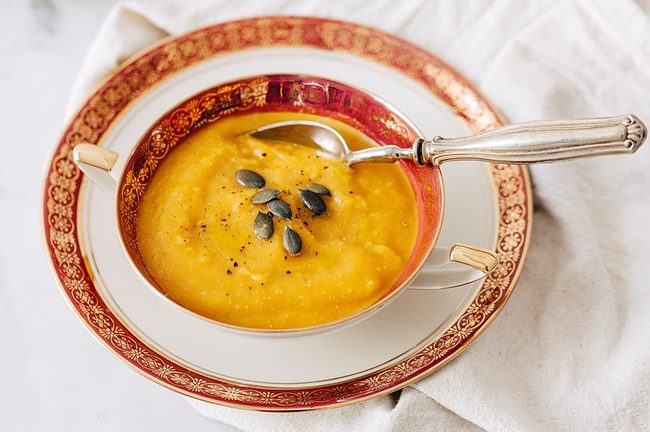
Ingredients
- 1 Red Onion
- 14 oz. Diced Pumpkin
- 5 Diced Carrots
- 2 Cups Vegetable Broth
- Parmesan Cheese
- Morocco Gold extra virgin olive oil.
Instructions
- Dice 1 red onion and brown it in Morocco Gold extra virgin olive oil in a large pot.
- After a few minutes, add 14 oz. diced pumpkin and 5 diced carrots.
- Cook for a few minutes, add 2 cups vegetable broth and a little salt, then let simmer for 20 minutes.
- Once all the ingredients have softened, transfer to a blender and mix until creamy.
- Serve with a sprinkling of grated parmesan cheese and a drizzle of Morocco Gold extra virgin olive oil.
Pumpkin Soup With carrots
Ingredients
- 4 oz. Leeks
- 11 oz. Pumpkin
- 2 cups Vegetable Broth
- Rosemary and freshly ground black pepper.
- Morocco Gold extra virgin olive oil.
Instructions
- Clean and slice 4 oz. leeks, then cook in a large pot with Morocco Gold extra virgin olive oil.
- In the meantime, chop 11 oz. pumpkin into small cubes then add to the leeks along with salt (to taste) and the vegetable broth.
- Cover and let simmer for around 20 minutes.
- Once the pumpkin and leeks have softened, blend and serve
- Add some chopped rosemary and freshly ground black pepper.
Pumpkin Soup With savoy cabbage
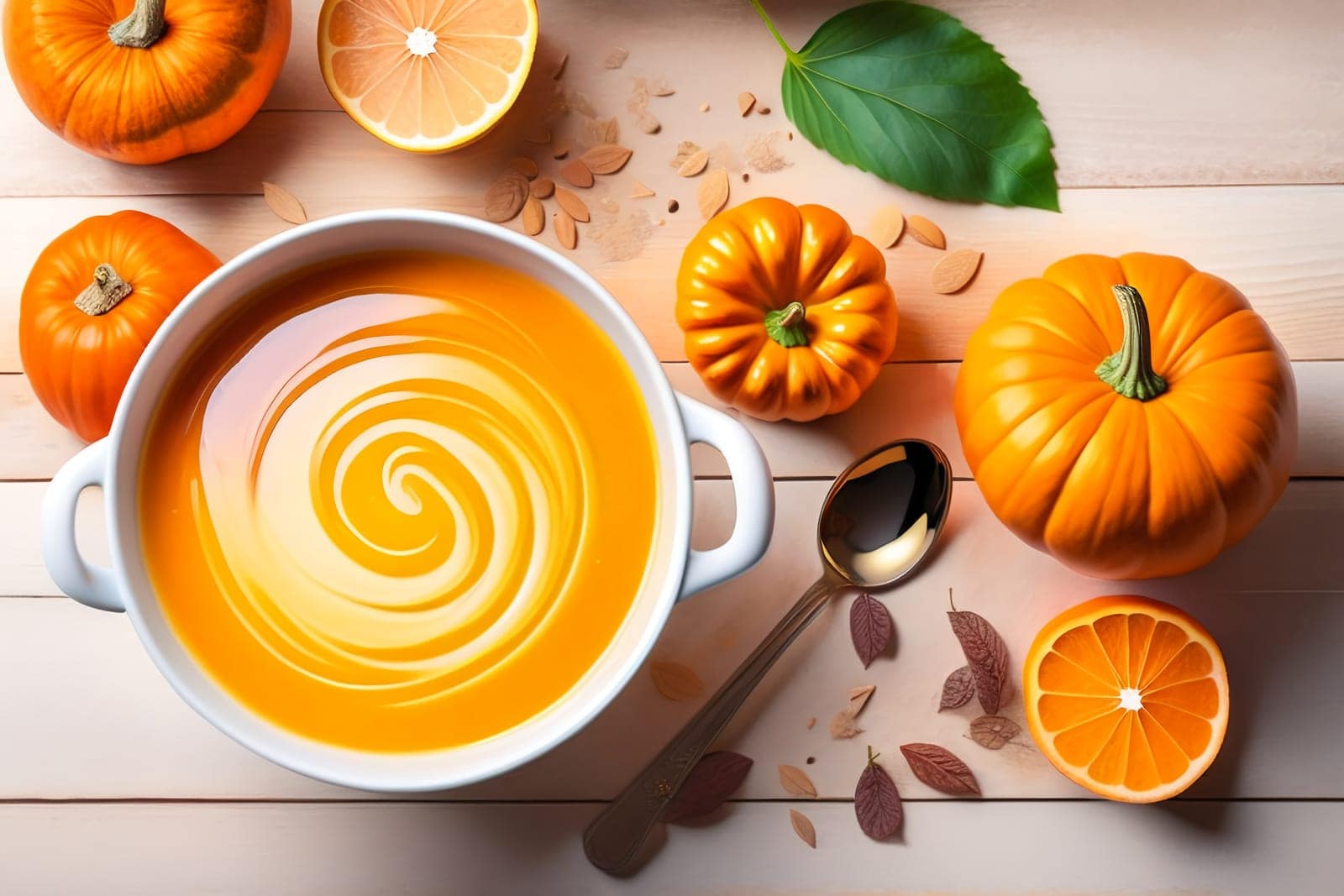
Ingredients
- 11 oz. Savoy Cabbage
- 11 oz. Pumpkin
- 3 Small Sage Leaves
- 1 Onion
- Rosemary to taste
- 1 garlic clove
- Morocco Gold extra virgin olive oil.
Instructions
- Start by cutting 11 oz. savoy cabbage into strips, then cook for 2 - 3 minutes in Health Benefits of Pumpkin
- In the meantime, cut 11 oz. pumpkin into cubes, finely chop 3 small sage leaves, and slice 1 onion.
- Cook 1 garlic clove in Morocco Gold extra-virgin olive oil, then pour all the ingredients into the same pot with 2 cups broth and let cook for just over 15 minutes.
- Blend and season with salt and pepper to taste.
- Remove the garlic, then add fried sage leaves with some freshly chopped rosemary and Morocco Gold extra virgin olive oil. to serve.
What Are Pumpkins
Pumpkin is a type of winter squash that belongs to the Cucurbitaceae family. It’s native to North America and particularly popular around Thanksgiving and Halloween.In the US, pumpkin typically refers to Cucurbita pepo, an orange type of winter squash. In other regions, such as Australia, pumpkin may refer to any type of winter squash.
While commonly viewed as a vegetable, pumpkin is scientifically a fruit, as it contains seeds. That said, it’s nutritionally more similar to vegetables than fruits. Beyond its delicious taste, pumpkin is nutritious and linked to many health benefits.
Health Benefits of Pumpkin Soup
Highly Nutritious and Particularly Rich in Vitamin A
Pumpkin has an impressive nutrient profile. One cup of cooked pumpkin (245 grams) contains
- Calories: 49
- Fat: 0.2 grams
- Protein: 2 grams
- Carbs: 12 grams
- Fiber: 3 grams
- Vitamin A: 245% of the Reference Daily Intake (RDI)
- Vitamin C: 19% of the RDI
- Potassium: 16% of the RDI
- Copper: 11% of the RDI
- Manganese: 11% of the RDI
- Vitamin B2: 11% of the RDI
- Vitamin E: 10% of the RDI
- Iron: 8% of the RDI
- Small amounts of magnesium, phosphorus, zinc, folate and several B vitamins.
Besides being packed with vitamins and minerals, pumpkin is also relatively low in calories, as it’s 94% water. It’s also very high in beta-carotene, a carotenoid that your body turns into vitamin A. Moreover, pumpkin seeds are edible, nutritious and linked to numerous health benefits.
High Antioxidant Content May Reduce Your Risk of Chronic Diseases
Free radicals are molecules produced by your body’s metabolic process. Though highly unstable, they have useful roles, such as destroying harmful bacteria.
However, excessive free radicals in your body create a state called oxidative stress, which has been linked to chronic illnesses, including heart disease and cancer.Pumpkins contain antioxidants, such as alpha-carotene, beta-carotene and beta-cryptoxanthin. These can neutralize free radicals, stopping them from damaging your cells.
Contains Vitamins That May Boost Immunity
Pumpkin is loaded with nutrients that can boost your immune system. For one, it’s high in beta-carotene, which your body turns into vitamin A. Studies show that vitamin A can strengthen your immune system and help fight infections. Conversely, people with a vitamin A deficiency can have a weaker immune system.
Pumpkin is also high in vitamin C, which has been shown to increase white blood cell production, help immune cells work more effectively and make wounds heal faster.
Aside from the two vitamins mentioned above, pumpkin is also a good source of vitamin E, iron and folate — all of which have been shown to aid the immune system as well.
Vitamin A, Lutein and Zeaxanthin May Protect Your Eyesight
It’s quite common for eyesight to diminish with age. Fortunately, eating the right nutrients can lower your risk of sight loss. Pumpkin is plentiful in nutrients that have been linked to strong eyesight as your body ages.Its beta-carotene content provides your body with necessary vitamin A. Research shows that vitamin A deficiency is a very common cause of blindness. In an analysis of 22 studies, scientists discovered that people with higher intakes of beta-carotene had a significantly lower risk of cataracts, a common cause of blindness.
Pumpkin is also one of the best sources of lutein and zeaxanthin, two compounds linked to lower risks of age-related macular degeneration (AMD) and cataracts (16Trusted Source).
Additionally, it contains good amounts of vitamins C and E, which function as antioxidants and may prevent free radicals from damaging your eye cells.
Nutrient Density and Low Calorie Count May Promote Weight Loss
Pumpkin is considered a nutrient-dense food. That means it’s incredibly low in calories despite being packed with nutrients. In fact, pumpkin clocks in at under 50 calories per cup (245 grams) and consists of about 94% of water.
Simply put, pumpkin is a weight-loss friendly food because you can consume more of it than other carb sources — such as rice and potatoes — but still take in fewer calories.
What’s more, pumpkin is a good source of fiber, which can help curb your appetite.
Antioxidant Content May Lower Your Risk of Cancer
Cancer is a serious illness in which cells grow abnormally. Cancer cells produce free radicals to help them multiply rapidly. Pumpkin is high in carotenoids, which are compounds that can function as antioxidants. This allows them to neutralize free radicals, which may protect against certain cancers.
For instance, an analysis of 13 studies showed that people with higher intakes of alpha-carotene and beta-carotene had significantly lower risks of stomach cancers.
Similarly, many other human studies have found that individuals with higher intakes of carotenoids have lower risks of throat, pancreas, breast and other cancer
Potassium, Vitamin C and Fibre May Benefit Heart Health
Pumpkin contains a variety of nutrients that can improve your heart health.
It’s high in potassium, vitamin C and fiber, which have been linked to heart benefits.
For instance, studies have shown that people with higher potassium intakes appear to have lower blood pressure and a reduced risk of strokes — two risk factors for heart disease.
Pumpkin is also high in antioxidants, which may protect “bad” LDL cholesterol from oxidizing. When LDL cholesterol particles oxidize, they can clump along the walls of blood vessels, which can restrict your vessels and raise your risk of heart disease.
Contains Compounds That Promote Healthy Skin
Pumpkins are loaded with nutrients that are great for your skin. For one, it’s high in carotenoids like beta-carotene, which your body turns into vitamin A. In fact, one cup (245 grams) of cooked pumpkin packs 245% of the RDI for vitamin A.
Studies show that carotenoids like beta-carotene can act as a natural sunblock.Once ingested, carotenoids are transported to various organs including your skin. Here, they help protect skin cells against damage from harmful UV rays.
Pumpkin is also high in vitamin C, which is essential for healthy skin. Your body needs this vitamin to make collagen, a protein that keeps your skin strong and healthy. Moreover, pumpkins contain lutein, zeaxanthin, vitamin E and many more antioxidants that have been shown to boost your skin’s defenses against UV rays.
Incredibly Versatile and Easy to Add to Your Diet
Pumpkin is delicious, expecially in pumpkin soup, versatile and easy to add to your diet. Its sweet flavor makes it a popular ingredient in dishes like custards, pies and pancakes. However, it works just as well in savory dishes such as roasted vegetables, soups and pastas.
Pumpkins have a very tough skin, so it requires some effort to slice. Once you cut it, scoop out the seeds and any stringy parts, then slice the pumpkin into wedges. The seeds are also edible and packed with nutrients which offer many other benefits. For instance, pumpkin seeds may improve bladder and heart health.

